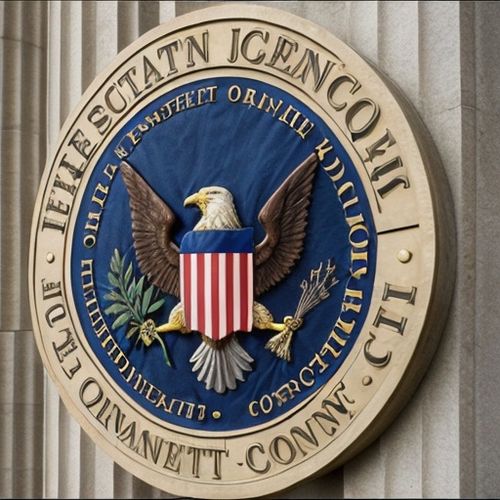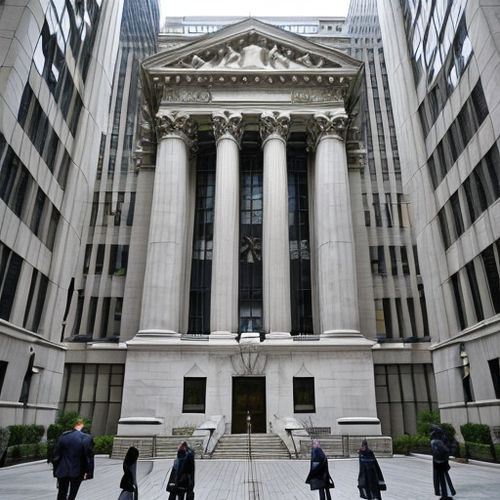The financial sector operates as the lifeblood of modern economies, facilitating capital flows, investments, and economic growth. Yet, with great power comes great responsibility—a principle that resonates deeply within the realm of finance. Financial professionals, whether bankers, investment advisors, or asset managers, bear a profound ethical obligation to uphold integrity, transparency, and fairness in their dealings. The moral fabric of this industry is not merely a matter of regulatory compliance but a cornerstone of sustainable trust between institutions, clients, and society at large.
At the heart of financial ethics lies the duty to prioritize clients' interests above all else. This fiduciary responsibility is often tested in environments where short-term gains and personal incentives collide with long-term client welfare. Instances of mis-selling financial products, concealing risks, or prioritizing high-commission investments over suitable ones have historically eroded public confidence. The 2008 financial crisis, for example, exposed how ethical lapses—such as predatory lending and opaque derivatives—can cascade into systemic catastrophes. A robust ethical framework demands that professionals resist such temptations, ensuring that every recommendation aligns with the client’s financial goals and risk tolerance.
Transparency is another pillar of ethical conduct in finance. Clients entrust professionals with their life savings, retirement funds, and future security, expecting honesty in return. This means clear communication about fees, potential conflicts of interest, and the realistic outcomes of investments. Complex jargon or deliberately obscure terms only serve to alienate and mislead. Ethical practitioners go beyond legal disclosures; they foster an environment where clients feel empowered to ask questions and fully understand where their money is going. The rise of ESG (Environmental, Social, and Governance) investing further underscores this point—investors increasingly demand clarity about how their capital impacts the world, pushing firms to adopt greater accountability.
Conflicts of interest, whether real or perceived, pose one of the most persistent ethical challenges in finance. A portfolio manager might face pressure to favor products that generate higher fees for their firm, even if inferior to alternatives. Similarly, investment banks may grapple with dual roles as advisors and underwriters, creating tension between unbiased guidance and profit motives. Ethical professionals navigate these dilemmas by disclosing conflicts upfront and, where possible, recusing themselves from decisions where impartiality is compromised. The rise of fiduciary standards in some regions reflects a growing recognition that the industry must institutionalize such safeguards.
The societal impact of financial decisions extends far beyond individual clients. Irresponsible lending practices can fuel housing bubbles, while speculative trading may destabilize markets. Ethical finance professionals must weigh the broader consequences of their actions, recognizing that their choices ripple through economies and communities. This perspective is gaining traction through concepts like "impact investing," where capital is deployed to generate measurable social or environmental benefits alongside financial returns. Such approaches challenge the stereotype of finance as a purely profit-driven field, showcasing its potential as a force for good.
Cultural and organizational dynamics play a critical role in shaping ethical behavior. Firms that reward aggressive sales tactics without regard for client outcomes create fertile ground for misconduct. Conversely, institutions that embed ethics into their DNA—through training, whistleblower protections, and leadership that models integrity—cultivate a culture where doing the right thing becomes second nature. The tone at the top matters immensely; when executives demonstrate unwavering commitment to ethical standards, employees are far more likely to follow suit. Recent scandals in banking and asset management have shown that lapses often stem not from rogue individuals but from systems that tacitly encourage cutting corners.
Technology introduces both opportunities and ethical quandaries for financial professionals. Algorithmic trading, AI-driven advice platforms, and big data analytics can enhance efficiency and accessibility, but they also raise questions about bias, privacy, and the depersonalization of finance. An algorithm trained on historical data might inadvertently perpetuate discriminatory lending practices, while chatbots handling client interactions could obscure the human accountability essential for ethical service. Professionals must ensure that technological tools are deployed thoughtfully, with safeguards to prevent harm and preserve the human element of trust.
Regulation alone cannot guarantee ethical conduct. While laws like the Dodd-Frank Act or MiFID II establish crucial guardrails, they often lag behind industry innovations and cannot cover every moral nuance. True ethical responsibility requires professionals to exercise judgment beyond what is legally mandated. This might mean refusing to participate in legally permissible but morally dubious transactions or advocating for higher standards within one’s organization. The mark of an ethical financial practitioner is not just avoiding punishment but actively striving to elevate industry practices.
Ultimately, the moral responsibility of financial professionals hinges on recognizing that money is never just money—it represents people’s livelihoods, aspirations, and vulnerabilities. Whether advising a first-time homebuyer, managing a pension fund, or structuring a corporate merger, ethical practitioners understand that their work carries profound human consequences. In an era of increasing complexity and scrutiny, rebuilding trust in finance will depend on a steadfast commitment to principles that transcend short-term profits. The most respected figures in finance will be those who prove that prosperity and integrity are not competing objectives but mutually reinforcing pillars of enduring success.

By Benjamin Evans/Apr 24, 2025

By Olivia Reed/Apr 24, 2025

By David Anderson/Apr 24, 2025

By David Anderson/Apr 24, 2025

By Amanda Phillips/Apr 24, 2025

By Emily Johnson/Apr 24, 2025

By Sarah Davis/Apr 24, 2025

By Jessica Lee/Apr 24, 2025

By John Smith/Apr 24, 2025

By Grace Cox/Apr 24, 2025

By Olivia Reed/Apr 24, 2025

By Lily Simpson/Apr 24, 2025

By Noah Bell/Apr 24, 2025

By Megan Clark/Apr 24, 2025

By Noah Bell/Apr 24, 2025

By George Bailey/Apr 24, 2025

By George Bailey/Apr 24, 2025

By Natalie Campbell/Apr 24, 2025

By Daniel Scott/Apr 24, 2025

By Benjamin Evans/Apr 24, 2025